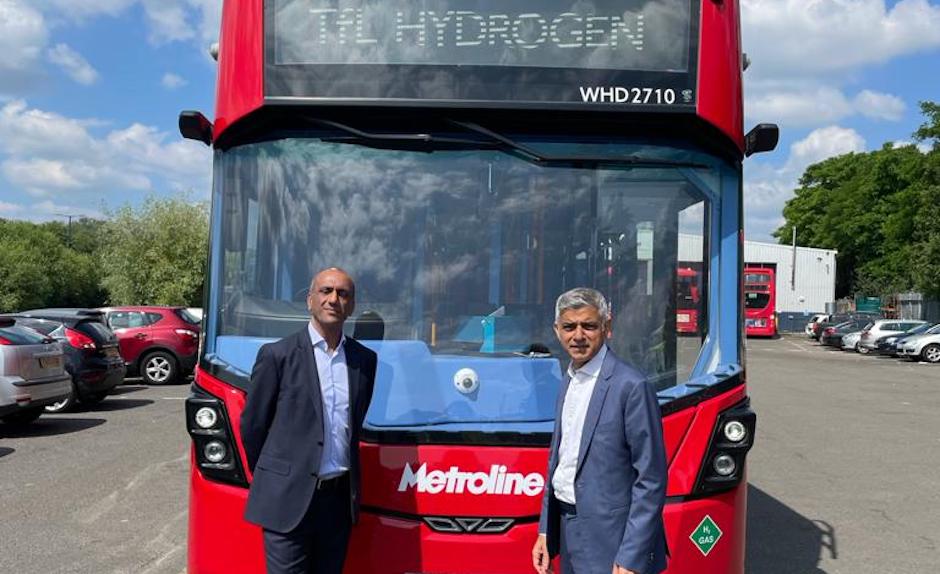Hydrogen buses launched in London
Mayor of London Sadiq Khan has launched England’s first hydrogen buses in the capital, with an aim to make all London buses zero emission by 2030.

The 20 buses will join over 500 electric buses in the core fleet which are already emission-free, aiming to improve the city’s air quality by reducing pollution and forming part of the UK’s wider net zero ambitions.
Manufactured by Wrightbus in Northern Ireland, with gas cylinders manufactured by Nottingham-based Luxfer, the hydrogen fuel cell powered buses will offer ‘smoother, quieter’ journeys for passengers in addition to being entirely free from harmful emissions, the only by-product being water from the chemical reaction of hydrogen with oxygen from the air.
Supported by over £12m funding from TfL, the Fuel Cells and Hydrogen Joint Undertaking (FCH JU), the Innovation and Networks Executive Agency (INEA) and the Office of Zero Emission Vehicles, the buses form part of the FCH JU-funded Joint Initiative for Hydrogen Vehicles (JIVE) project which seeks to deploy 139 new zero-emission fuel cell buses and associated refuelling infrastructure across five European countries.
Register now to continue reading
Thanks for visiting The Engineer. You’ve now reached your monthly limit of news stories. Register for free to unlock unlimited access to all of our news coverage, as well as premium content including opinion, in-depth features and special reports.
Benefits of registering
-
In-depth insights and coverage of key emerging trends
-
Unrestricted access to special reports throughout the year
-
Daily technology news delivered straight to your inbox










Water Sector Talent Exodus Could Cripple The Sector
Maybe if things are essential for the running of a country and we want to pay a fair price we should be running these utilities on a not for profit...